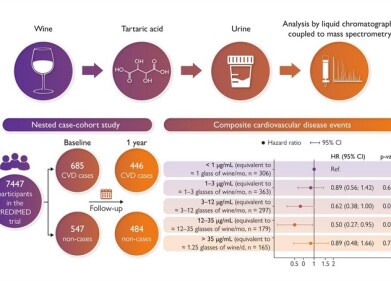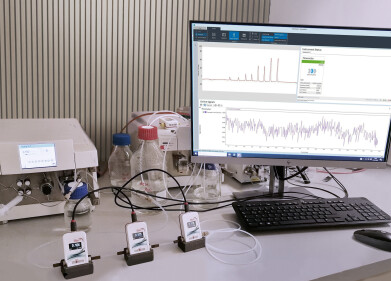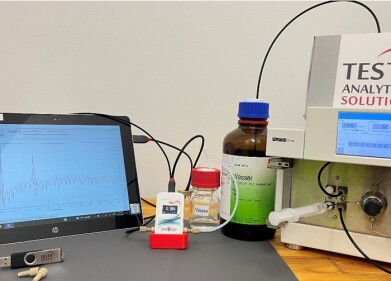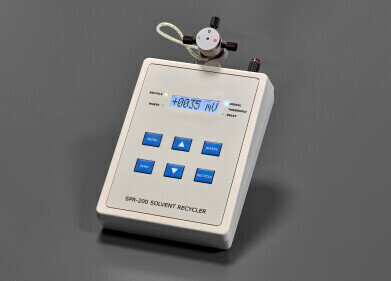Chromatography
Are There Two Types of Water?
Jul 02 2018
Tasteless, colourless and odourless, water is one of the purest chemical compounds on the planet. While it's generally assumed H2O comes in only one form, a new study published in Nature Communications suggests that water isn't as simple as originally thought.
In a world first, scientists from Switzerland's University of Basel have successfully isolated two different forms of water molecule "isomers" and confirmed they exhibit different behaviours when undergoing chemical reactions.
Honing in on nuclei "spin"
When broken down, water molecules are made up of a single oxygen atom bonded to a pair of hydrogen atoms. This chemical formula is more commonly known as H2O and is generally assumed to be an all-inclusive term. However, when analysing the "spin" of the nuclei at the core of the hydrogen atoms water molecules can be further subdivided.
This "spin" directly affects rotation patterns and can be used to categorise of water molecules into two groups: ortho-water when the nuclear spins of both hydrogen atoms follow the same direction and para-water when they're arranged in different directions.
Ortho vs para
So how was the team able to make such a minute distinction? Co-author Professor Stefan Willitsch from the University of Basel's Department of Chemistry explains that it was all thanks to electric fields, which allowed the team to distinguish between the isomers and investigate how different forms of water react with other chemicals.
At room temperature, ortho-water and para-water exist in equal amounts. This is because the molecules contain enough energy to switch between the different states. However, when molecules were chilled to temperatures of −273°C researchers noticed that each molecule stabilised as either ortho or para.
After separating the ortho and para streams each form was forced into a chamber filled with diazenylium, a positively charged ultracold ion made up of two nitrogen atoms and one hydrogen atom. They found that para-water reacts around 25% faster with ultracold diazenylium ions than ortho-water. The difference is caused by nuclear spin patterns that affect the rotation of H2O molecules and allow para water’s electrical field to attract ions at an accelerated rate.
While the findings don't offer any significant impact in the field of chemistry, Willitsch maintains the insight is priceless. "It's one of the most fundamental molecules on this planet — in the entire universe, so this is quite an important piece in the whole puzzle".
Want to know more about the latest scientific developments? Spotlighting new technologies from Chromatotec, 'Monitoring Airborne Molecular Contamination in Indoor Cleanroom Air' introduces the new-look airmoTWA range.
Digital Edition
Lab Asia 31.6 Dec 2024
December 2024
Chromatography Articles - Sustainable chromatography: Embracing software for greener methods Mass Spectrometry & Spectroscopy Articles - Solving industry challenges for phosphorus containi...
View all digital editions
Events
Jan 22 2025 Tokyo, Japan
Jan 22 2025 Birmingham, UK
Jan 25 2025 San Diego, CA, USA
Jan 27 2025 Dubai, UAE
Jan 29 2025 Tokyo, Japan



















